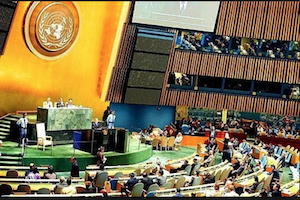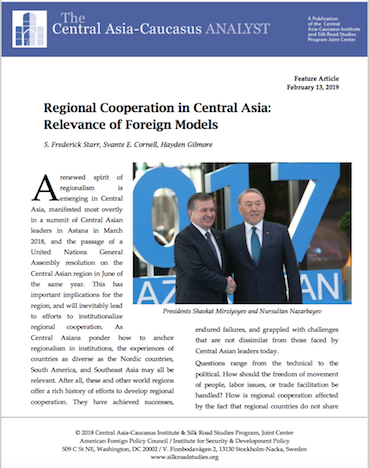Central Asia: Delayed Consultations, Suspended Integration
By Farkhod Tolipov
July 2, 2019, the CACI Analyst
After almost a decade-long break in regional summits of Central Asian states, the ice began to melt in March 2018 when the leaders of five Central Asian states met in Kazakhstan’s capital Astana for a so-called Consultative Meeting. Many observers termed the event a revitalization of the regional cooperation process, albeit in a new temporary format for talks, and a cautious step toward a regional approach to regional problems. During that first Consultative Meeting, it was decided that the second meeting would take place in Tashkent in March 2019. However, when March came the meeting was rescheduled for April and is still delayed.
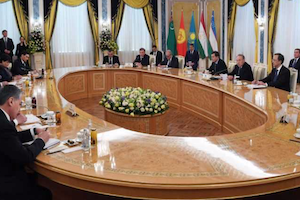
Protest Against Chinese Migrants in Kyrgyzstan: Sinophobia or Demands for Social Justice?
By Nurlan Aliyev
April 16, 2019, the CACI Analyst
An anti-Chinese protest took place in Bishkek on January 17, 2019, the third in recent months. The protesters demanded a moratorium on issuing Kyrgyz passports to Chinese citizens, except for ethnic Kyrgyz, to scrutinize all Chinese-funded enterprises and also to test the appropriateness of loans taken from China. They demanded that Chinese citizens who reside illegally in Kyrgyzstan should be deported and a halt to labor quotas for Chinese. Other topics raised were high-level corruption and demands for transparency in the government’s financial activities, especially regarding its expenditure of Chinese grants and loans. Protesters also expressed disapproval of marriages between Kyrgyz women and Chinese men, demanding prohibited registration of mixed marriages and fines for newlyweds. The anti-Chinese protests in Kyrgyzstan take place in a broader context of rising sinophobic sentiments in Central Asia in recent years.
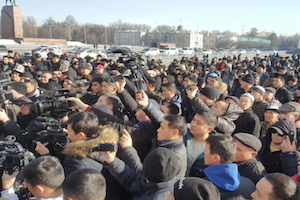
"Modeling" Peace on the Great Silk Road
By Rafis Abazov
April 5, 2019, the CACI Analyst
Recent initiatives on stabilizing Afghanistan and security in the region during the high-level International Conference on Afghanistan in Geneva, and discussions of reconciliation with the Taliban in Doha and Moscow, have offered a number of conventional measures helping to resolve some of the area’s problems, but often only in the short run. However, below the radar of the heavyweight political players, groups of dedicated youth quietly work on the long-term solution through replicating the international efforts inside and outside of Afghanistan in their Model UN. Every year tens of thousands of students from across Greater Central Asia not only discuss the most pressing regional issues, but also educate and train the next generation of young people on diplomatic, negotiation and conflict prevention issues. The question is, will it work?
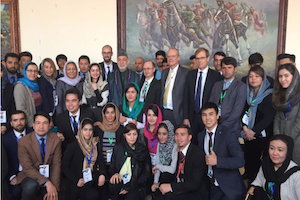
Regional Cooperation in Central Asia: Relevance of Foreign Models
Regional Cooperation in Central Asia: Relevance of Foreign Models
A renewed spirit of regionalism is emerging in Central Asia, manifested most overtly in a summit of Central Asian leaders in Astana in March 2018, and the passage of a United Nations General Assembly resolution on the Central Asian region in June of the same year. This has important implications for the region, and will inevitably lead to efforts to institutionalize regional cooperation. As Central Asians ponder how to anchor regionalism in institutions, the experiences of countries as diverse as the Nordic countries, South America, and Southeast Asia may all be relevant. After all, these and other world regions offer a rich history of efforts to develop regional cooperation. They have achieved successes, endured failures, and grappled with challenges that are not dissimilar from those faced by Central Asian leaders today.
Questions range from the technical to the political. How should the freedom of movement of people, labor issues, or trade facilitation be handled? How is regional cooperation affected by the fact that regional countries do not share the same patterns of membership in international organizations? How deeply institutionalized should regional structures be? How do they relate to outside powers, particularly large ones and potential hegemons? These questions are the focus of the following sections.
UNGA Adopts Resolution on Strengthening Cooperation in Central Asia
By Batir Tursunov
September 5, 2018, the CACI Analyst
At its June 22, 2018, plenary session, the UN General Assembly adopted a resolution on “Strengthening regional and international cooperation to ensure peace, stability and sustainable development in the Central Asian Region.” According to Uzbekistan’s Foreign Ministry, all UN members unanimously supported the draft document, developed by Uzbekistan along with other Central Asian states.
